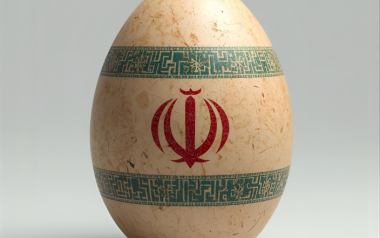The Turkish poultry sector is dependent on foreign supplies for feed, which is the main input cost for poultry operations (70 percent of the total expenditure). On February 27, 2021, the Ministry of Agriculture and Forestry (MinAF) approved four soybean events and one corn event for feed as a result of the applications of the Turkish Poultry Meat Producers and Breeders Association (Besd-Bir) to approve those genes. Although approval of GE soybeans and corn events for feed is welcomed by the Turkish poultry industry, the high cost of feed imports will continue to be a main concern of the sector.
24 Mar 2021
Turkish chicken meat production will grow 2.16 Million Metric Tons in 2021
According to the last Poultry and Poultry Products Semi Annual Report from the U.S. Department of Agriculture, it is expected that Turkey increase the chicken meat production in 2021 by 2.16 Million Metric Tons as demand for affordable protein sources to a growing population increases and the industry focuses on exporting to new markets. However, these expectations are lower than those previously reported since Covid-19 impacts on domestic consumption, exports and high feed prices may limit production.
According to the last Poultry and Poultry Products Semi Annual Report from the U.S. Department of Agriculture, it is expected that Turkey increases the chicken meat production in 2021 by 2.16 Million Metric Tons as demand for affordable protein sources to a growing population increases and the industry focuses on exporting to new markets. However, these expectations are lower than those previously reported since Covid-19 impacts on domestic consumption, exports and high feed prices may limit production.
Turkey poultry production growth has been retarded due to a lack of supply of imported day-old chicks and hatching eggs. Consequently, the growth rate has been between 6 and 10 % during the last 15 years. Poultry producers now face higher prices in breeding stocks because of a greater demand from Russia and Middle Eastern countries. Canada, the U.S. and the U.K. are the main suppliers for broilers and turkey stock. While supply can be difficult, Turkey has trying to create a pure-line breeding stock by cross-breeding 5 imported broiler pure-lines. As a result, the Anatolian-T line has been used to reduce the import demand, but additional efforts are necessary to successfully lower the import needs.
In 2020, Turkey produced 2.14 MMT of chicken meat, almost the same as 2019. Growth has been stymied by high feed prices dependent on imports and the depreciation of the Turkish lira, which makes imported feed raw materials and breeding inputs more expensive. The Covid-19 pandemic, economic instability, and export restrictions of poultry products to Iraq have caused poultry operations to limit their production capacity. Following the same trend, slaughtered broiler numbers reduced only 0.5 percent in 2020 when compared with the previous year.
Source: Foreign Agricultural Service, U.S. Department of Agriculture








































